When European colonizers arrived in the Americas, European racism toward Native Americans led to poor treatment, treaty breaking, forced displacement, spreading of illness and death.
At a micro level, however, the encounter between these groups was more nuanced. Many early European settlers, especially those traders who pushed into the Great Lakes region, lived with Native American groups, learned their languages, partnered with them and had children. The children of these unions often grew up to hold leadership positions on the frontier and to negotiate between Native Americans, European settlers and ultimately the United States government.
This nuance can be seen in the historical books on Native Americans held in our Special Collections unit. Most are written by white men--European settlers or their American descendants. Many of these memoirs or ethnographic works catalog Native Americans in dehumanizing ways. At the same time, these books provide important documentation of the vast array of Native societies existing at the time of European contact, often including glossaries of different languages, brightly colored images of Native dress and mapping different Native groups to the geographic regions where they lived.
In rare instances, we have historical books written by Native Americans, and I’d like to highlight two titles whose authors lived near Chicago.
Autobiography of Ma-ka-tai-me-she-kia-kiak or Black Hawk was first published in 1833. The earliest edition in our stacks is from 1882. The full book is also available on Google Books and Project Gutenberg. This book recounts the life of Black Hawk, Sauk chief, known for challenging the American government in 1832 in what became known as the Black Hawk War. He and his followers fought for their right to inhabit land in the Chicago region.
Black Hawk and his supporters were overwhelmingly outnumbered by American troops and were ultimately forced to surrender. Not long after, in 1833, the Pottawatomie formally ceded the last of their land in the area. Black Hawk’s autobiography was published that same year.
Interestingly, the title page states Black Hawk dictated the story and lists both a translator and an editor/amanuensis. The book begins with sworn affidavits attesting to the validity of the book as Black Hawk’s own words. Indeed, the tale criticizes European settlers and the American government. CPL holds multiple editions of this book, some of which you can check out and take home.
O-gî-mäw-kwě Mit-i-gwä-kî = Queen of the Woods. Also Brief Sketch of the Algaic Language was published in 1899 by Simon Pokagon, son of the patriarch of the Pokagon Pottawatomie who lived in Southwest Michigan. The full book is available on the Internet Archive.
Simon Pokagon was an author and activist. He petitioned the federal government to make good on payment long owed to the Pottawatomie as agreed to in the 1833 treaty that ceded the land that became Chicago.
His The Red Man’s Rebuke, written in 1893, criticized the Chicago’s World’s Columbian Exposition for its celebration of Christopher Columbus’s arrival in the Americas when that arrival ushered in the decimation of Native communities. In answer to Pokagon’s criticism, Mayor Carter Harrison invited Pokagon to be a Native representative at the Fair. Pokagon attended and delivered a speech seemingly at odds with his earlier advocacy. According to the October 10, 1893, Chicago Tribune, Pokagon said, “Our children must learn that they owe allegiance to no clan or power on earth except these United States. They must learn and love to wave the stars and stripes and at all times to rejoice that they are American citizens.”
In his novel, O-gî-mäw-kwě Mit-i-gwä-kî = Queen of the Woods, Pokagon attempts to capture and celebrate the traditions of the Potawatomi people.
If you would like to explore the early books about Native Americans in our collection, please make an appointment to visit Special Collections.
The One Book, One Chicago title for 2023 is There There by Tommy Orange. Learn more and join the discussion.


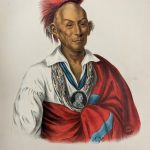
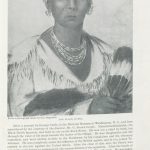
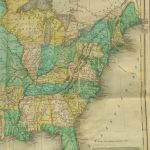
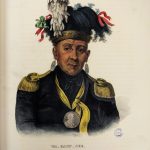
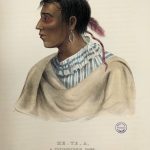
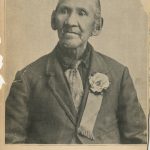

Add a comment to: From the Special Collections: Historical Titles by Native Americans